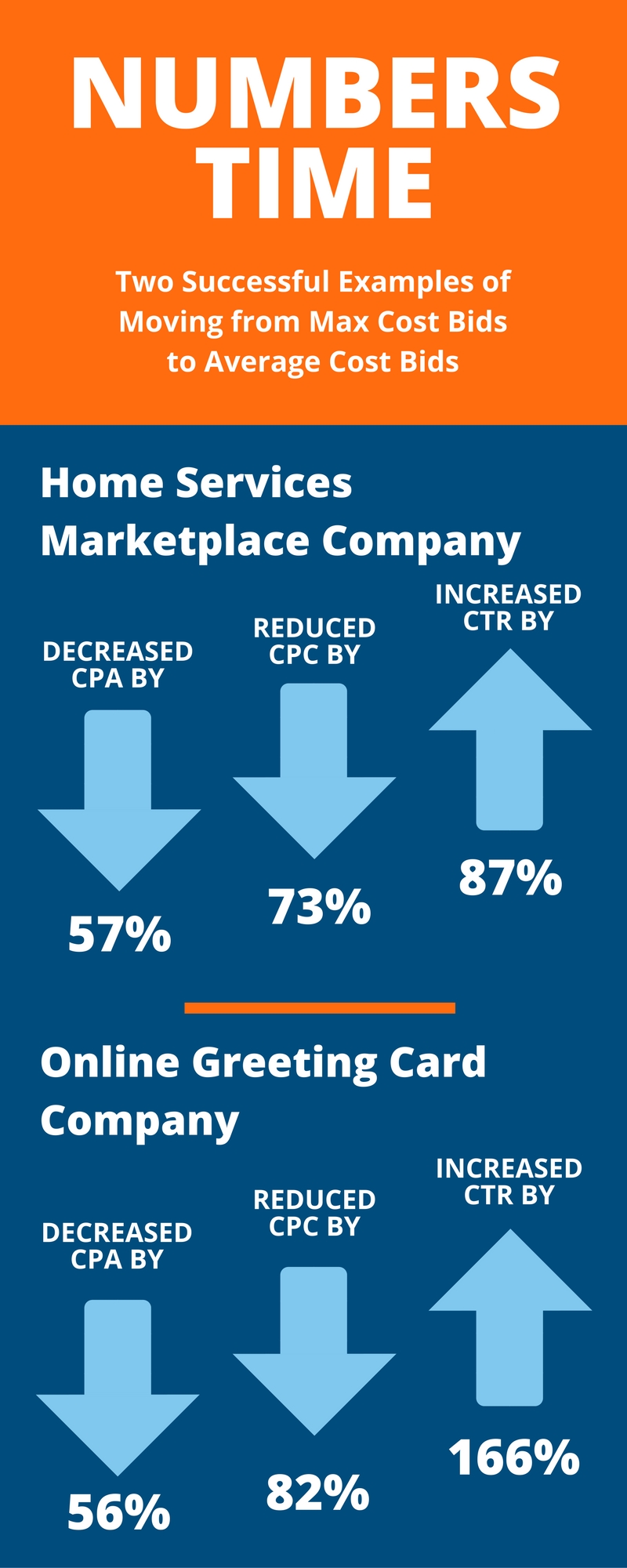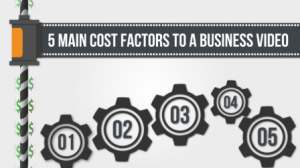One of the things we pride ourselves on here at OrionCKB is that we’re always staying ahead of the latest Facebook Ad features.
Why should you care about that? Because it means if we see something working well, we can make sure our clients are some of the first to use it in their ad campaigns.
From the time Facebook changed their bidding system this past summer, we have been trying their average cost bidding vs. maximum cost bidding. Since many of our clients have been seeing success with average cost over maximum cost bidding, we wanted to share what we found with you.
WHAT’S THE DIFFERENCE BETWEEN MAXIMUM COST BIDDING AND AVERAGE COST BIDDING?
It will help underscore our results if we break down what exactly the difference is between maximum cost bidding and average cost bidding.
MAXIMUM COST BIDDING
When you’re using maximum cost bidding, you set your max bid threshold with Facebook from the start.
For example, say that you wanted $ 6 conversions and your starting bid is $ 10. When you first start running your ad, you might see $ 3 conversions. Facebook will continue to push those ads since they are converting well below your maximum bid.
This high maximum bid will increase the volume of your conversions, but a bid that high leaves you exposed. Facebook will only slow down the delivery as you approach your $ 10 max bid, above your $ 6 target.
AVERAGE COST BIDDING
Average cost bidding is different because it allows you to bid closer to your final cost.
For this example, let’s stick with the $ 6 target from above. Except that your average cost bid is $ 8, not $ 10. If you’re getting $ 3 conversions, Facebook’s Average Cost Bidding will fluctuate and bid higher than $ 8.
The difference here is that Facebook will bid based on what the average result is over your 1- or 7-day click window.
That means advertisers will have delivery even if the conversions are above target. What actually matters in the end, is what the average cost is.
WHY SHOULD YOU CARE?
Average bidding exposes you to a wider audience than a maximum cost bid campaign. The potential audience reached when bids are exponentially higher is going to be wider than when you’re stuck at $ 10 bids and below.
As Matt Pacheco, Director of Ad Optimization describes it, “In average cost bidding, your bids get more aggressive when your costs are low. When costs increase, your bids go down and limit your exposure to inefficient traffic.”
GIVE ME THE NUMBERS
These are only a small sample of the number’s we’ve seen, but they make for two great examples.

WHAT’S THE TAKEAWAY FROM ALL OF THIS?
With average cost bidding, we’ve won more auctions, we’re reaching and engaging with more of the audience, and CPAs are down.
These results are even more impressive because we’ve been testing them using the same creative assets on our well-qualified audiences. Usually, CTRs will start to drop after a while because the audience starts to suffer from creative fatigue. They become used to the images shared and the information available and they tune ‘em out.
Imagine the audience as a pie chart and the ones that are the most likely to take the action we’re bidding on (say conversions) are the ones that Facebook will most actively target with our bids. With maximum cost bidding, Facebook will stop near our maximum bid. But with average cost bidding, average cost bidding unlocks a greater portion of the available audience that might not have been exposed to our ad previously.

Basically, we’re now reaching new people in that same audience just by changing the bid type of our ad, plus we’re able to bid truer to our CPA goal.
Bottom line? Average cost bidding in these cases is leading to a more efficient ad spend, where clients are seeing their money go further and reaching more people. And that outcome is always a success in our book!
Digital & Social Articles on Business 2 Community
(22)





